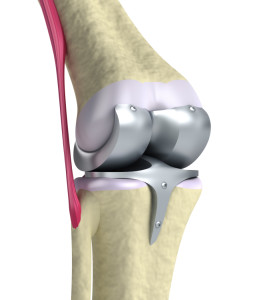Many people in the Reading, PA area suffer from knee pain and stiffness related to arthritis and certain knee injuries and diseases. If conservative treatments have failed to relieve the pain and improve your movement, it may be time to consider total knee replacement surgery.
Dr. Stephen Soff er practices orthopedic surgery at Berkshire Orthopedics, a division of Keystone Orthopedics, in Wyomissing. He received his medical degree from the University of Pennsylvania School of Medicine, and performed his orthopedic residency at Union Memorial Hospital and Johns Hopkins Hospital. He is fellowship trained by the renowned sports surgeon, Dr. James Andrews.
er practices orthopedic surgery at Berkshire Orthopedics, a division of Keystone Orthopedics, in Wyomissing. He received his medical degree from the University of Pennsylvania School of Medicine, and performed his orthopedic residency at Union Memorial Hospital and Johns Hopkins Hospital. He is fellowship trained by the renowned sports surgeon, Dr. James Andrews.
Dr. Soffer specializes in arthroscopy and the treatment of sports-related injuries, as well as the open and arthroscopic treatment of knee, shoulder and elbow injuries. He also performs artificial joint replacement for arthritis of the knee, shoulder and hip. His expertise has earned him inclusion in U.S. News & World Report’s Top Doctor listing for the last five years.
About Knee Replacement Surgery
During total knee replacement surgery, the surgeon moves the kneecap aside and removes damaged bone and cartilage, which are then replaced with new metal and plastic components. The components combine to form a synthetic joint that is biologically compatible and mimics the movement of the natural knee. Most knee replacement procedures take 1.5 to two hours to complete.
Following are answers to some of the most common questions about total knee replacement surgery:
- Is partial knee replacement possible? Partial knee replacement may be possible when there is damage to only one part of the joint. In this case, only the damaged parts of the knee are replaced. Partial knee replacements can sometimes delay or eliminate the need for a total knee replacement.
- Will there be pain after surgery? Most people experience some pain following surgery, but it generally diminishes in less than one week. Sometimes pain can persist in one form or another for many weeks, but this is normal. After surgery, the orthopedic surgeon will most likely prescribe pain medication. Ice packs and elevating the legs will also help lessen the amount of pain.
- Will physical therapy be required after knee replacement surgery? Yes; physical therapy will play a very important role in your recovery. The therapist will help you walk and regain the range of motion in your knee. You will receive instructions on exercises you can do to strengthen the knee, such as swimming or riding a stationary bicycle. Even after your knee has recovered, plan to continue regular exercise.
- When can you return to work and normal activities? Many patients who work in sedentary jobs are able to return to work as early as two to four weeks after surgery. For more rigorous jobs, you may have some restrictions for up to three months. You can usually resume activities like walking, gardening and golf fairly quickly as the knee gets stronger. Avoid activities such as running, tennis, and downhill skiing until your knee has fully recovered. Most patients are close to full recovery after three months.
- How long does knee replacement last? This will vary from one patient to another, but more than 90% of knee replacements continue to function well 15 to 20 years after surgery. As knee replacement technology improves, your new knee may last even longer.
More than 500,000 total knee replacement procedures are performed every year in the United States. If you are looking for an orthopedic surgeon in the Reading, PA area who specializes in artificial joint replacement, get in touch with Dr. Soffer at 610-375-4949 to schedule a consultation.



